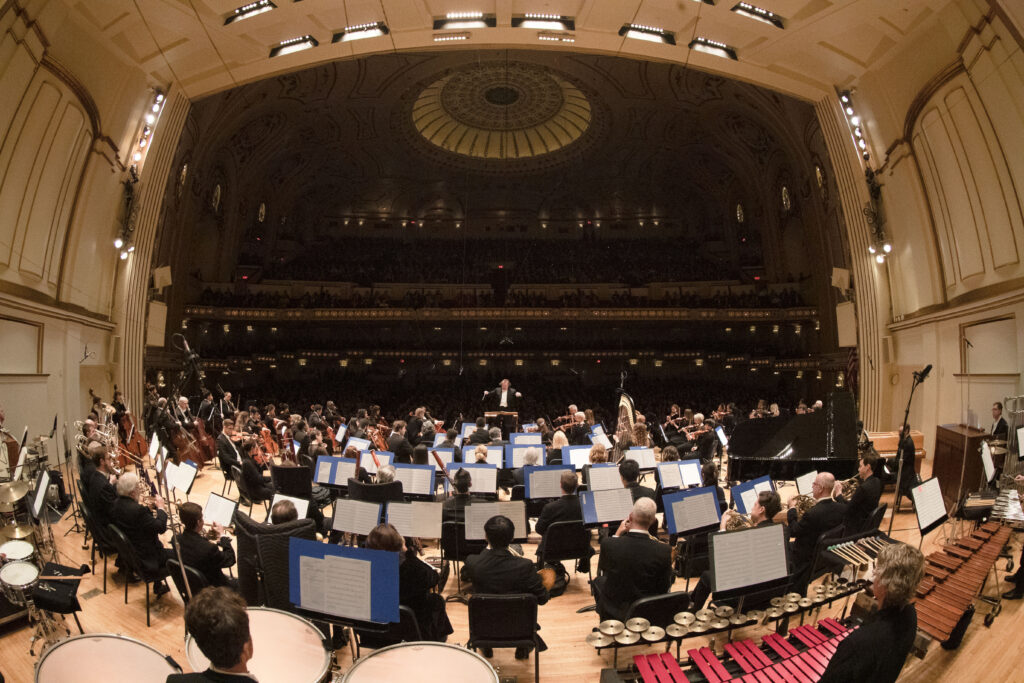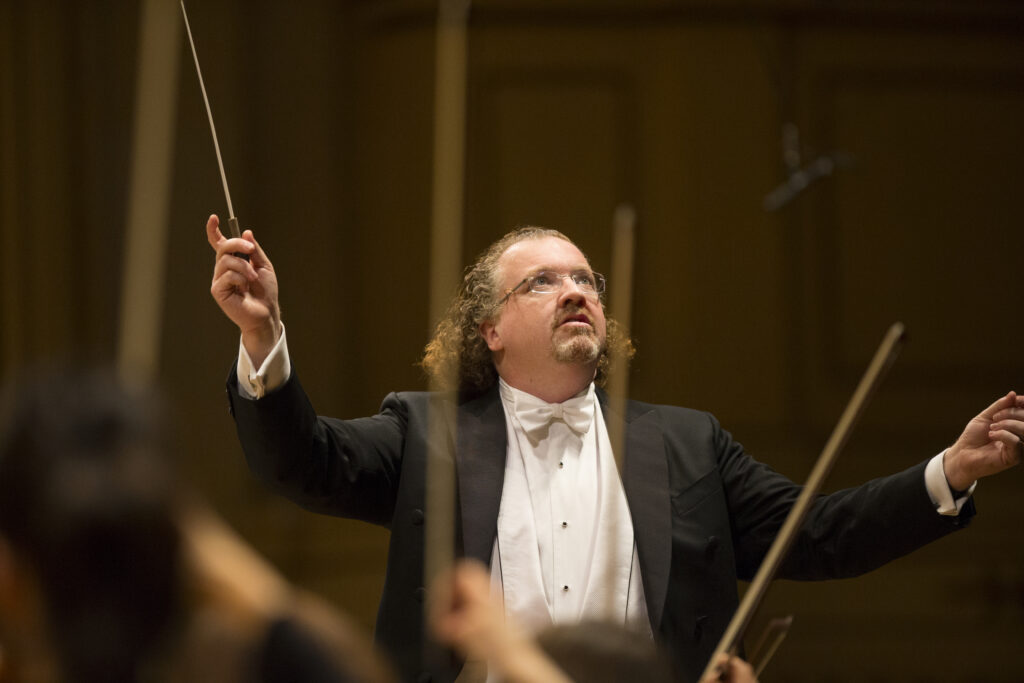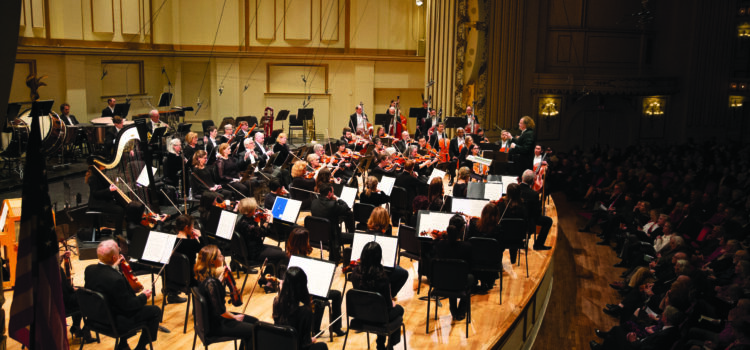By CB Adams
It’s been more than a week since the Saint Louis Symphony’s (SLSO) opening performance, the first salvo in the 2022-23 season. Across the St. Louis cultural landscape, as we have emerged from the isolating effects of the pandemic, the last several
months have seemed like a time of emergence, anticipation and expectation for theater, live music and the visual arts. The pandemic was not a pleasant experience, but for some, this hunker-down time was like a creative chrysalis or inspiring incubator.
Such seems to have been the case for Stéphane Denève, Music Director of the Symphony, and his development partner, Erik Finley, the SLSO’s Vice President and General Manager. “Stéphane’s big idea for 2022/23 was the French word ailleurs,” Finley is quoted in the
Symphony’s Playbill. “Loosely translated, the word means ‘elsewhere,’ or ‘another place.’ Stéphane and I began our conversation around the idea of ‘journeying’ – of traveling the world through music.”
The onus on reviewers is usually to provide one’s critique like a loaf of freshly baked bread – best hot from the oven (i.e., performance). But some reviews benefit from a little more time, more of a stew, perhaps (to continue the culinary metaphor). Such is the case
with the SLSO’s prix fixe season opener that included Antonín Dvořák (best known), Jacques Ibert (less well-known) and Nathalie Joachim (perhaps the least known, especially outside of the symphony world).
Preparing for the opening performance, I ranked the pieces in that order. Yet, with the passage of some time, that order has been upended – at least in terms of what has had the most staying power. And that’s thanks to that sense of ailleurs, especially Joachim’s
“Fanm d’Ayiti” (“Women of Haiti”) Suite, which was sandwiched between the Ibert and Dvořák pieces.
I wasn’t sure what to expect from Joachim, a Brooklyn-born self-identified Haitian- American who is a Grammy-nominated composer, vocalist and flutist whose works range from classical to pop and indie-rock, and whose affiliations include Oregon Symphony
(where she is the Artistic Partner) and the flute duo, Flutronix (which she co-founded). She’s also a newly appointed faculty member at Princeton University.
The full-length “Fanm d’Ayiti” (2019), which earned the Grammy nomination, consists of 11 pieces for flute, voice (in “kreyól” or creole), string quartet and some electronics. Grammy.com noted that “Fanm d’Ayiti” “…constitutes an ethnographic research
undertaking.” It is based on Joachim’s conversations with family members and others in the Haitian community, as well as additional field research.
“I found such a kinship in their stories as artists, and specifically female artists, really trying to make it in a field where women’s voices are ever-present but really under- represented,” Joachim was quoted by Grammy.com.
On paper, Joachim’s project seemed a risky choice for the SLSO because of its ethnographic, almost academic, approach. “Yes,” I thought, “but is it any good?” My skepticism was almost immediately allayed within the first minutes of the three selections: “Suite pou Dantam,” “Madan Bellegrade” and “Fanm d’Ayiti.”
What remains of this performance is a warm sense of being transported to the Haitian country, of “being there.” Joachim’s voice was smooth and sweet, as was her flute playing, and the orchestra’s performance was intermingled with recorded voices of her maternal grandmother and of an all-girls choir from her family’s hometown.
Overall, it was a visceral experience, not dryly academic. It’s no wonder, then, that the performance earned a mid-concert standing ovation. Because “Fanm d’Ayiti” is the least well-known of the evening’s music makes it deserving of the lion’s share of coverage. It was an important choice, and based on its success, it helps strengthen the relationship – the trust – that should exist between music director and those who support the SLSO. It’s as if Denève and Finley were saying, “Trust us, you’ll like this.”

They weren’t wrong with “Fanm d’Ayiti.” The success of “Fanm d’Ayiti” was elevated by the works that surrounded it, forming a
musical travelogue that transported the audience to the Czech Republic, nee Bohemia, and ports of call in the Mediterranean. The combination integrated thoughtfully well, especially as it relates to the notion of ailleurs.
The evening began with Ibert’s 1922 suite “Escales” (“Ports of Call”). “Escales” is a story in three movements that begins at sea and explores the soundscapes of three ports of call, “Rome—Palermo,” “Tunis—Nefta” and “Valencia.” Denève directed Ibert’s colorful suite with a vigorous, cinematic soundtrack sensibility. Ibert’s score made fine use of the skills of Jelena Dirks, principal oboist.
The evening concluded with Dvořák’s Symphony No. 8, Op. 88. The names of symphony’s four movements (Allegro con brio, Adagio, Allegretto grazioso and Allegro ma non troppo) offer some indication of why this was a fine way to end the evening with
an energetic, cheerful, exuberant and poetic performance. Denève and D (let’s call them the Two D’s) drew upon the SLSO’s strong woodwinds during the numerous solo passages.
In her Playbill introduction, SLSO President and CEO, Marie-Hélène Bernard, wrote, “We believe that music is a universal language and in creating an environment where music is accessible to all. This is made possible through a more welcoming concert experience and for new and returning audience; broader programming that makes the orchestra a vital part of everyone’s life…”
Every journey begins with a first step, and the opening performance of this new season was indeed a terrific first step toward that ideal of ailleurs. There is no substitute for experiencing a live orchestral performance – especially one as diverse and satisfying as
this one. It’s amazing to view the musicians assembled on Powell Hall’s stage and to consider all that practice, practice, practice that led them to this point. And for the next several months, it’s up to us to listen, listen, listen.


CB Adams is an award-winning fiction writer and photographer based in the Greater St. Louis area. A former music/arts editor and feature writer for the St. Louis Globe-Democrat, his non-fiction has been published in local, regional and national publications. His literary short stories have been published in more than a dozen literary journals and his fine art photography has been exhibited in more than 40 galley shows nationwide. Adams is the recipient of the Missouri Arts Council’s highest writing awards: the Writers’ Biennial and Missouri Writing!. The Riverfront Times named him, “St. Louis’ Most Under-Appreciated Writer” in 1996.

